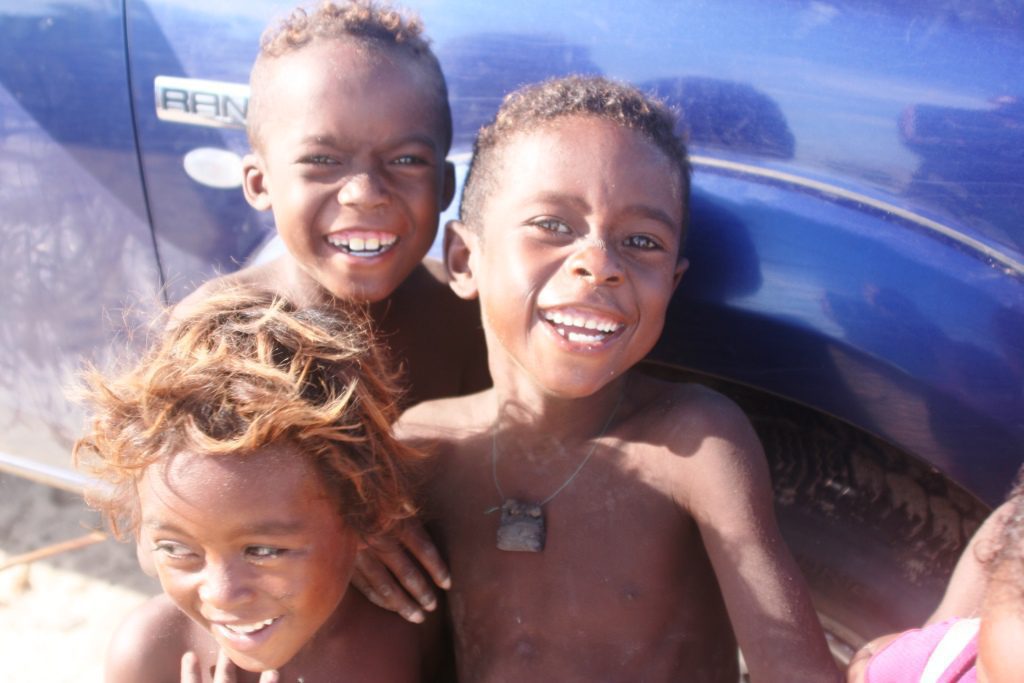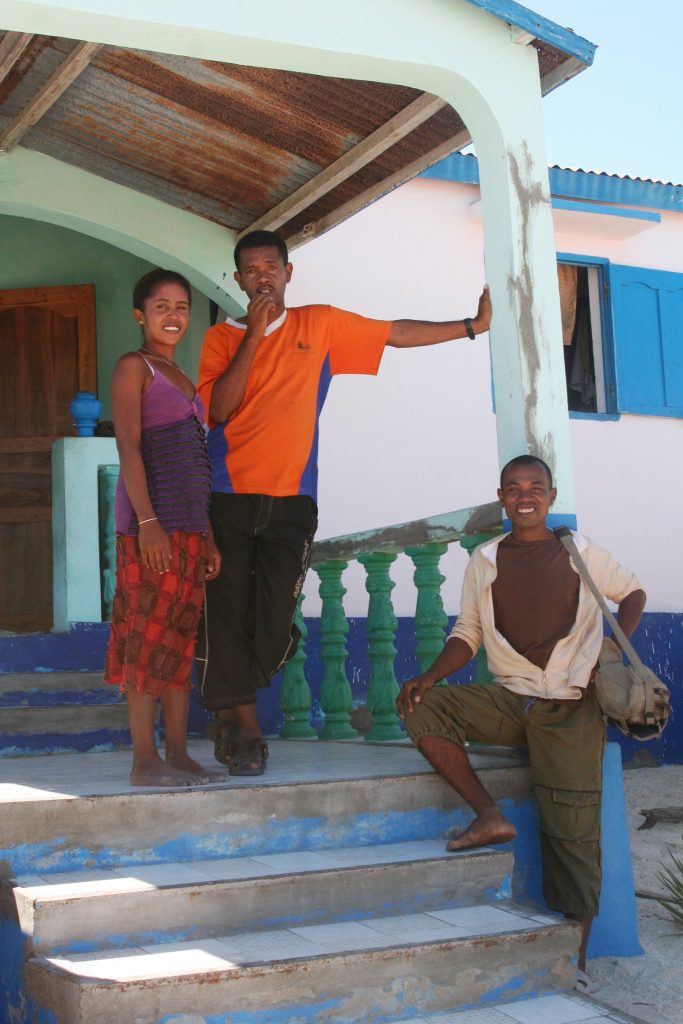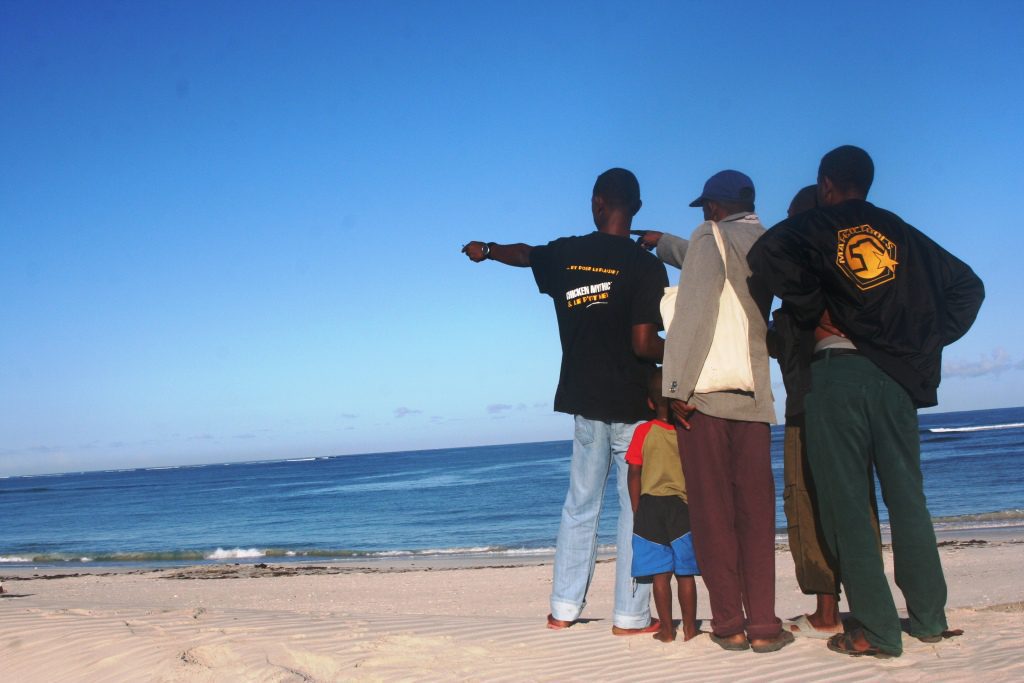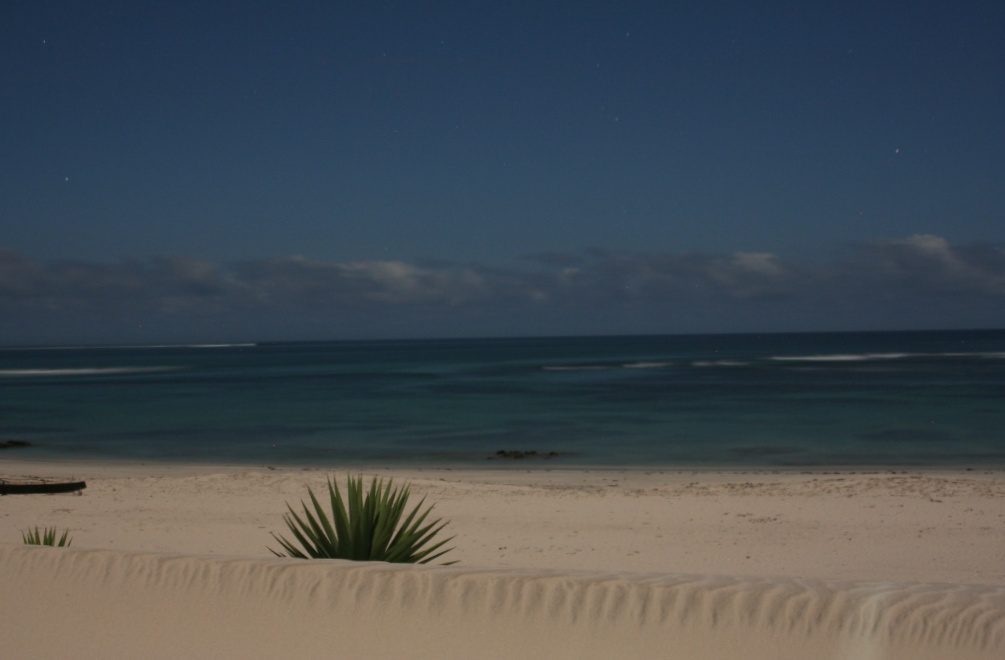by Sophie Benbow, Southwest Regional Coordinator, Madagascar
On a recent trip to the south of Toliara I seem to have confirmed the stupidity of domestic livestock. Drive past a herd of grazing zebu and they may look up with a nonchalant glance and give a casual flick of their tail if you are lucky. Drive past a herd of goats and they will run as fast as their legs and the foliage will allow them away from the road. Drive past a flock of sheep however, and they will scatter randomly in all directions including onto the road in a wild state of panic even when the car passes a good 20m from their actual location.
The foliage and road surface seems to change every kilometre as we travel from Toliara to Ambohibola, but one thing that has been consistent is the welcome we receive in every village. Children and adults alike are drawn to the arrival of the BV car and gather around staring at everything we produce and listening intently to everything we say. We are frequently offered coffee and bok bok by people earning less a day than the average cost of a single coffee in the developed world, and our offers of a small token of appreciation are very grudgingly accepted if at all.
We were travelling south of Toliara to collect participatory mapping info in an attempt to document and develop maps of the extent of the octopus fishing sites throughout the region. Working with our local data collectors we gathered a small group of active fishers, ideally one old, one young, one male and one female and went through the lengthy process each time of helping them to visualise their village and reef sites on the printed out satellite photo we presented them with. On occasion this proved a little challenging, but everyone grasped it in the end and we now have hand sketched octopus fishing site maps which we can process in Toliara to project fishing site areas onto Google Earth. We successfully conducted mapping in 14 out of 15 villages where monitoring occurs to the south of Toliara. In the final village, Lanirano we were in danger of being cut off by the tide so had to forgo the mapping in return for not being stranded there for the night which is mildly ironic given its name loosely translated in my best vezo means ‘the water is gone’!
Travelling as a vazaha woman with a car load of gasy boys can, on occasion, highlight some stark differences. For example, our accommodation on the first night was perfectly acceptable, apart from the lack of any kind of toilet and the fact that I had to wait until nightfall before showering in front of a broken window with no shutter! And then we arrived in Itampolo, battered and weary after a successful day of mapping 5 villages and a long day on the road, to quite possibly the most idyllic hotel location I have ever seen. We stayed in beach bungalows with small en suite buckets of well water which felt incredibly luxurious after the previous nights accommodation. Octopus fishing is targeted over the spring tide periods when the tide is at its most extreme and there are a few hours each day when the intertidal reef flat is fully exposed. This also coincides with the full moon, and the moonlit view from our huts was quite spectacular, surpassed only by the sunrise the next morning.





